Cecil Mills Collection - Wallet 6 - Part 1 of 1
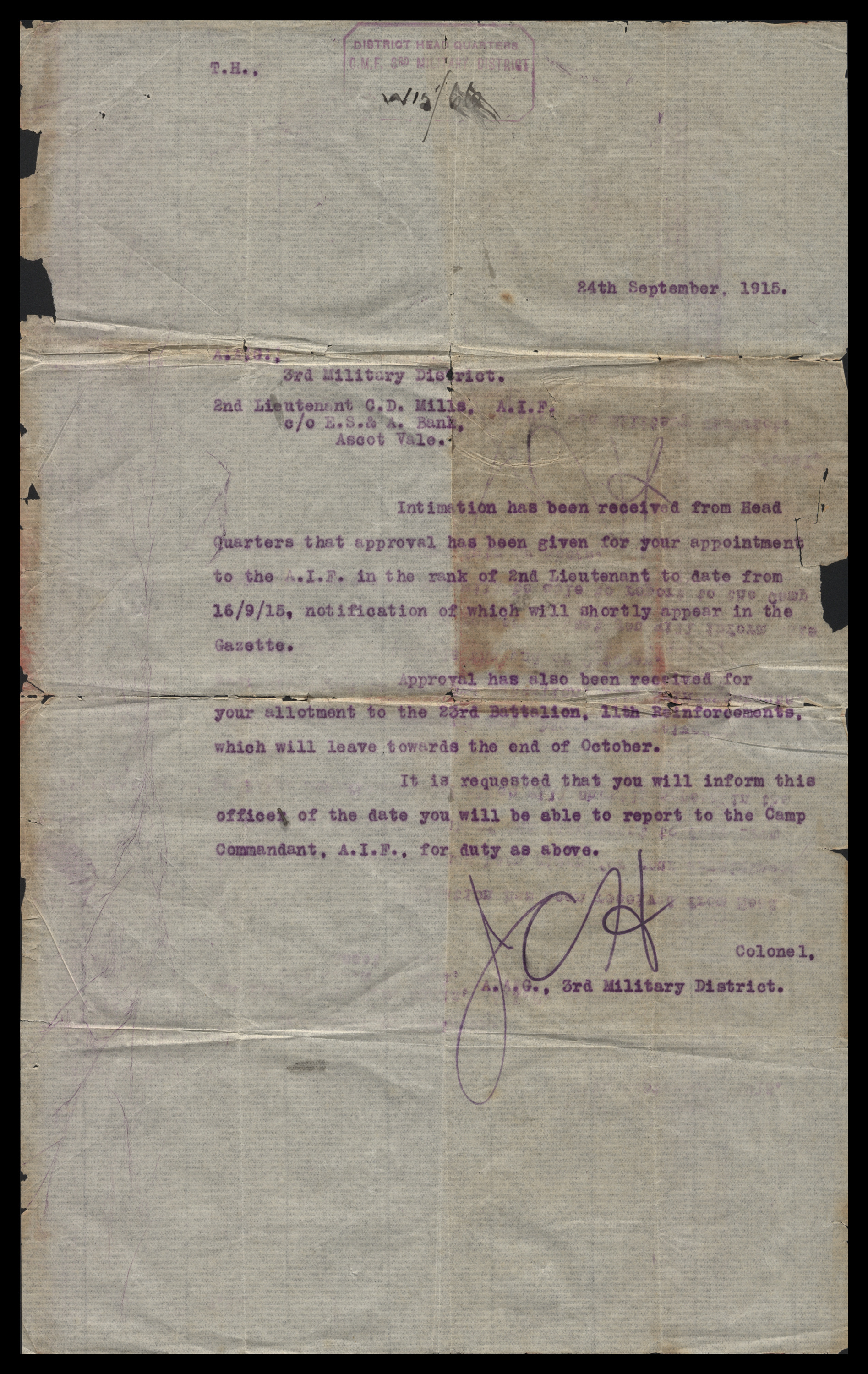
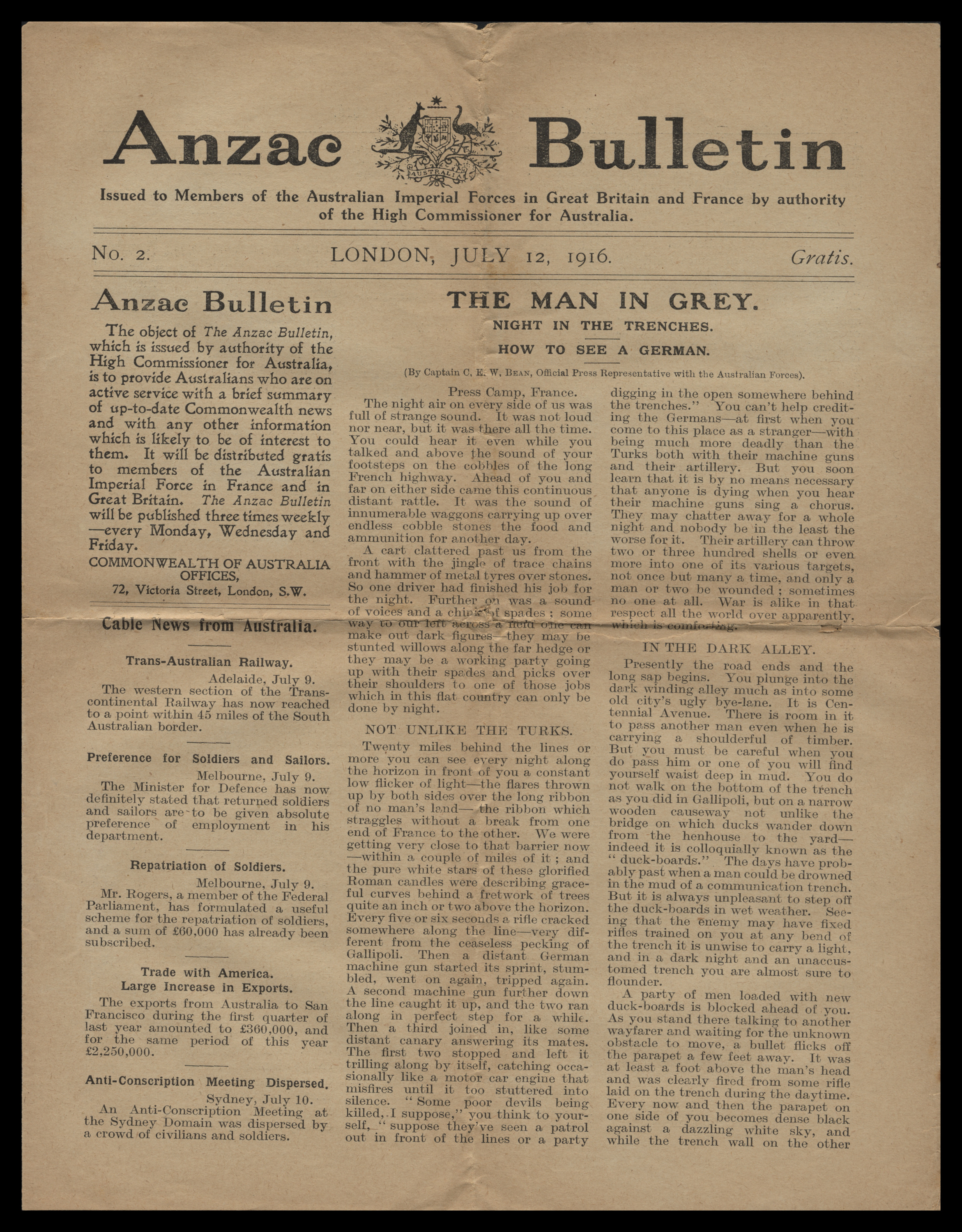
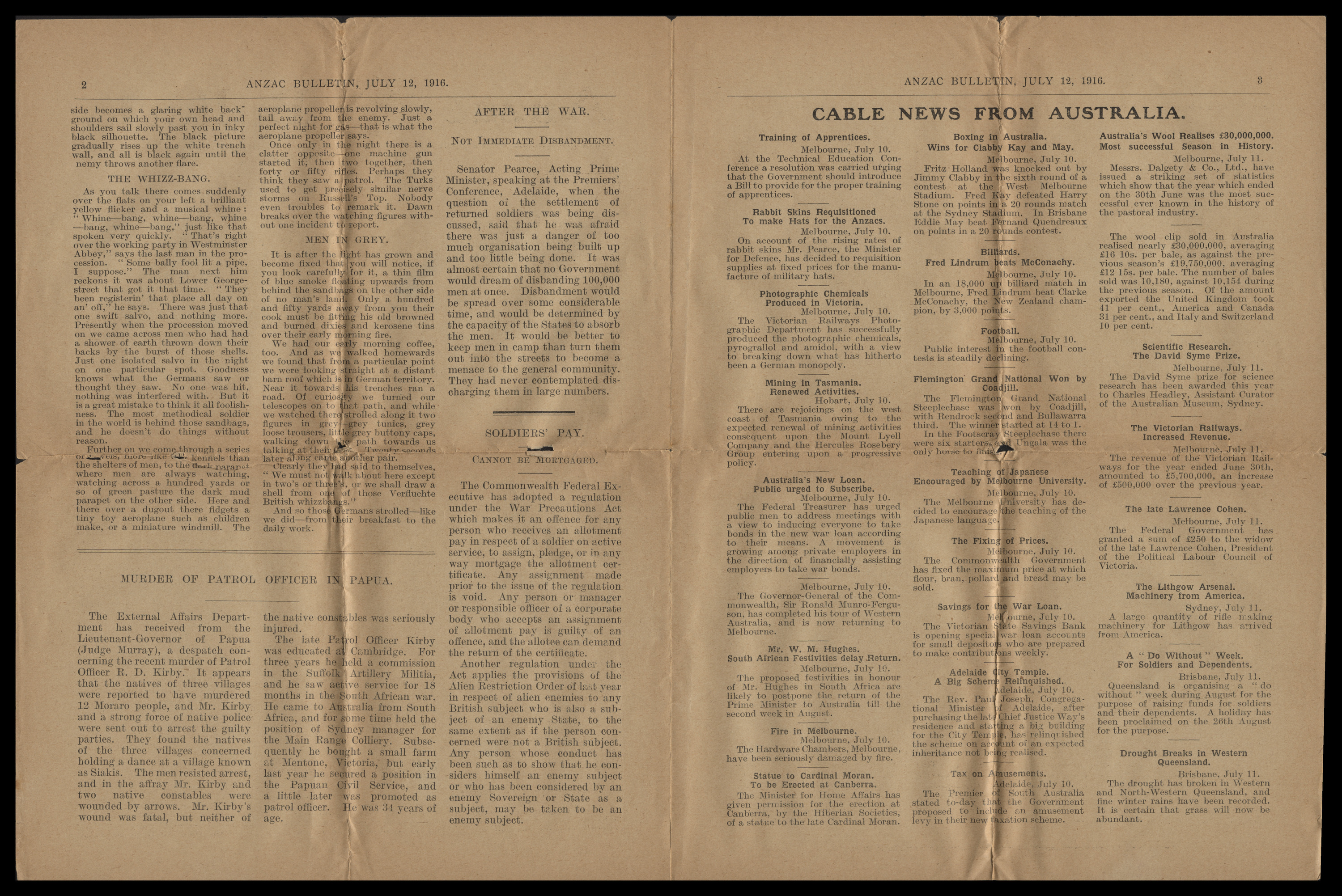
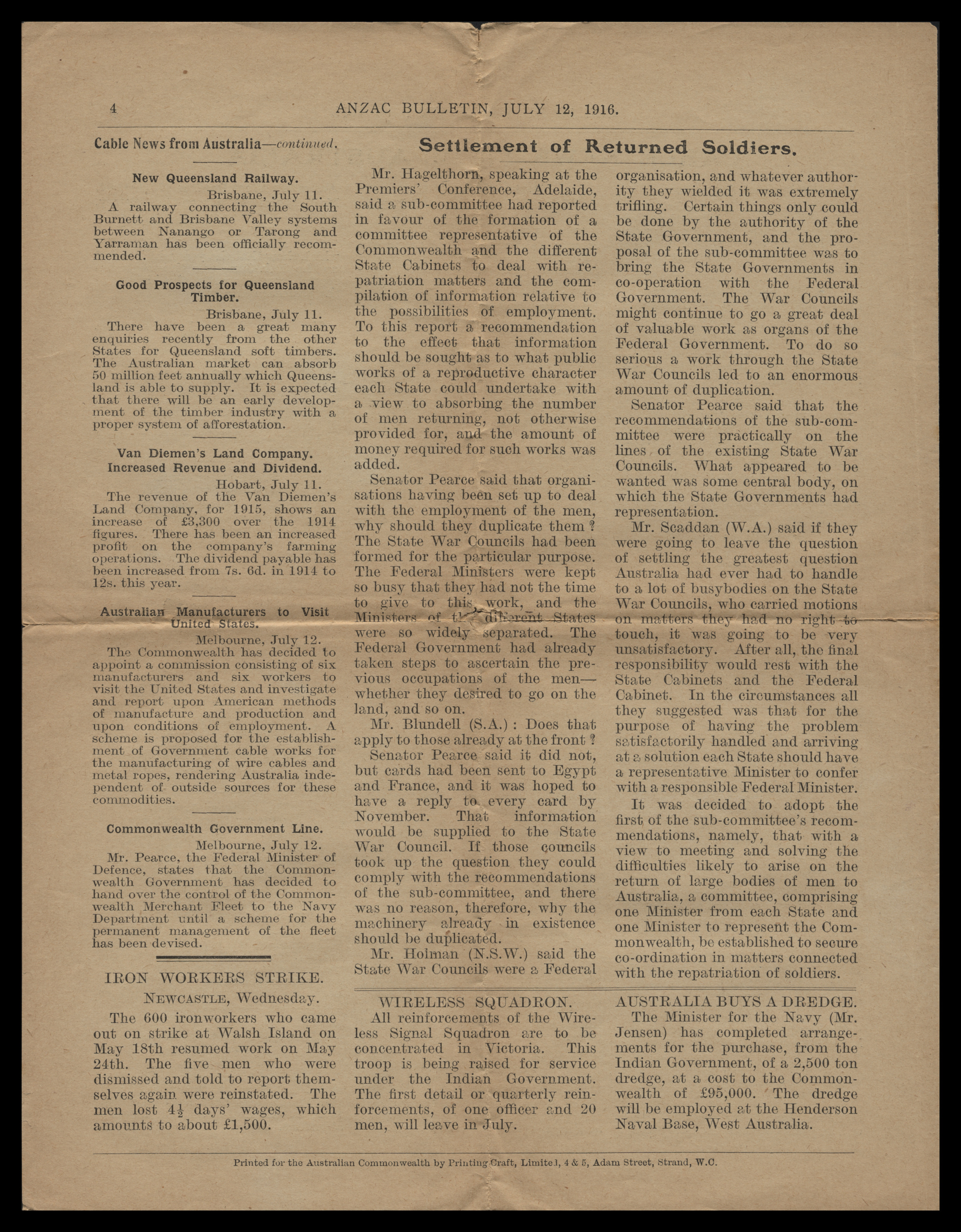
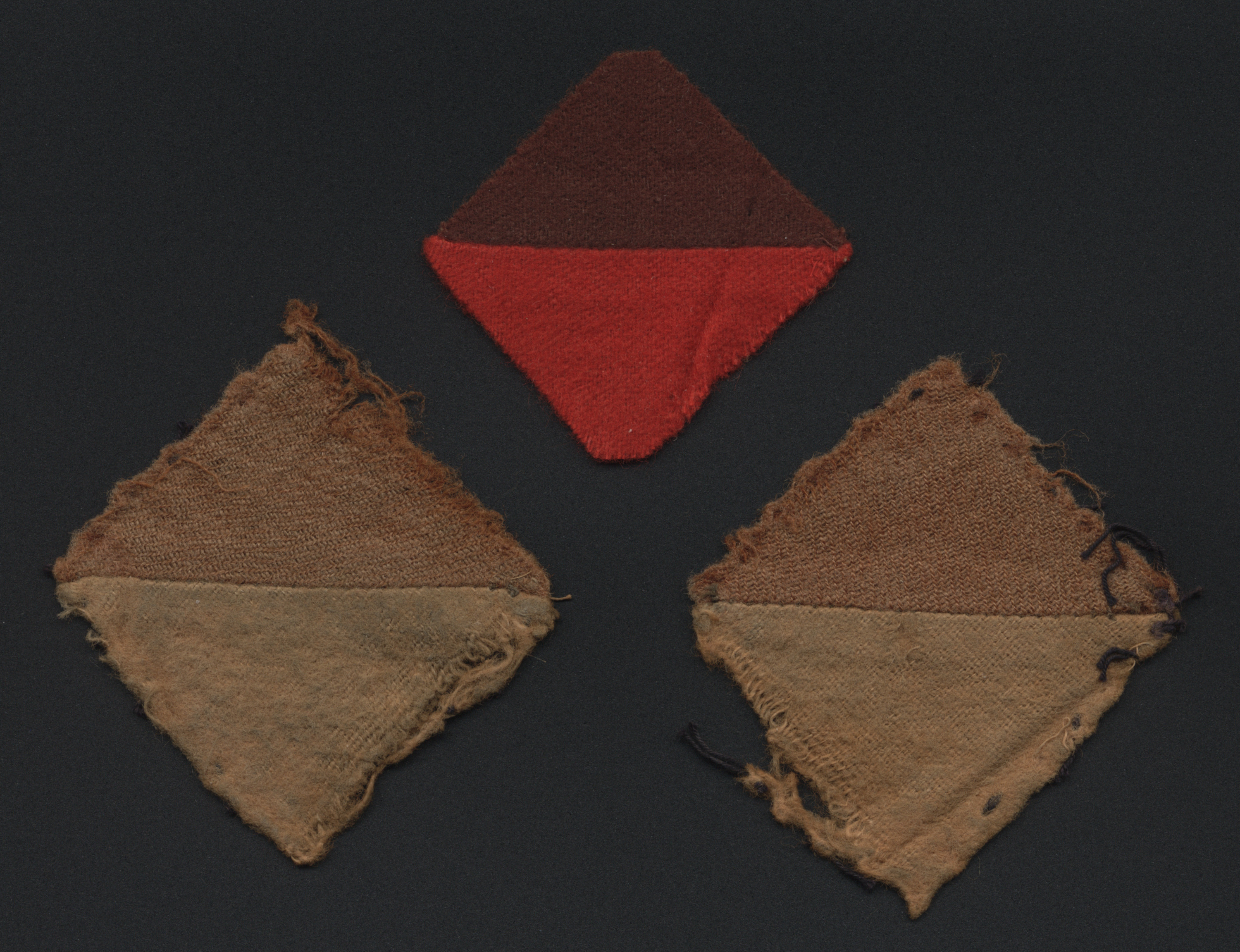
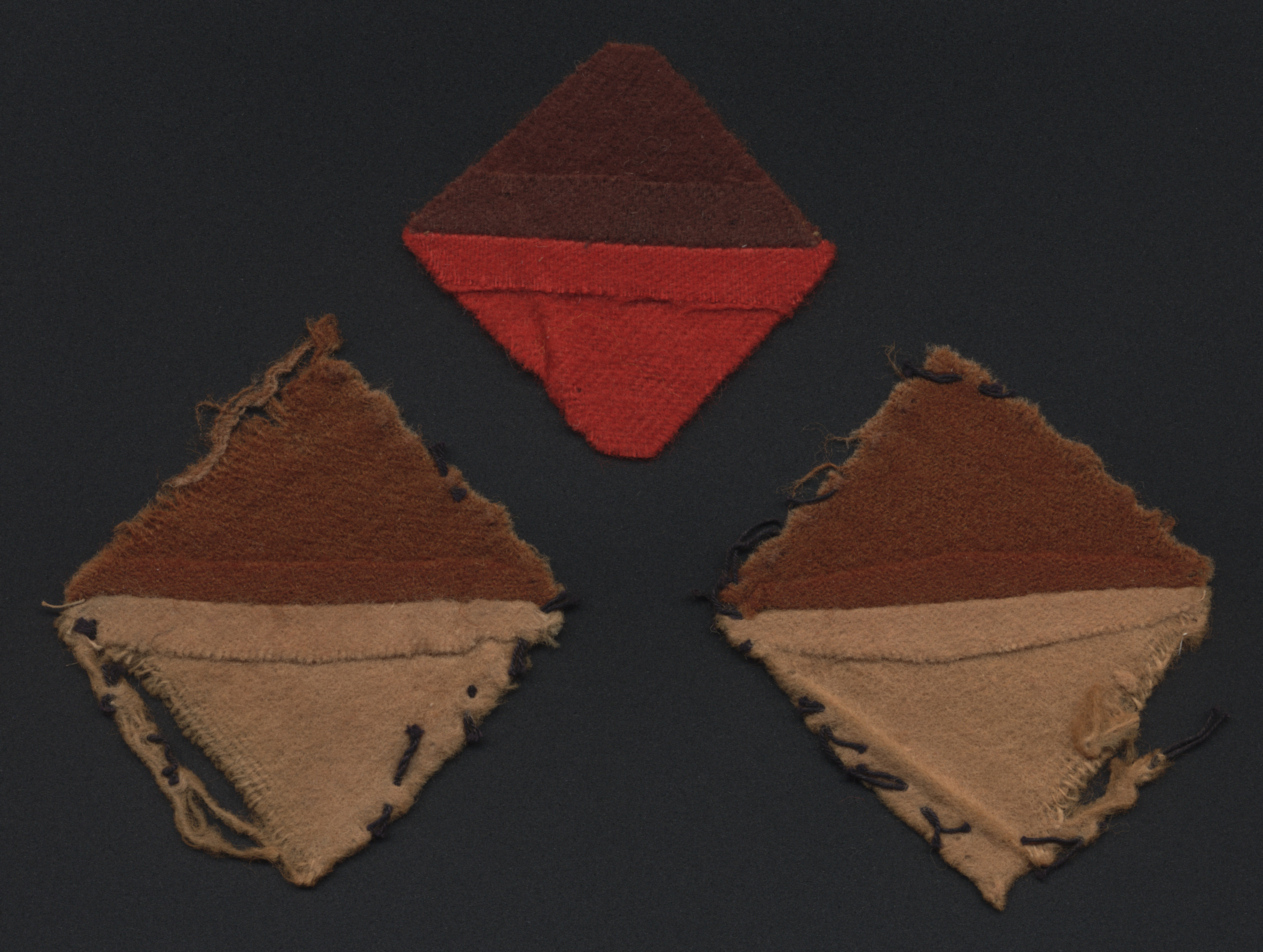
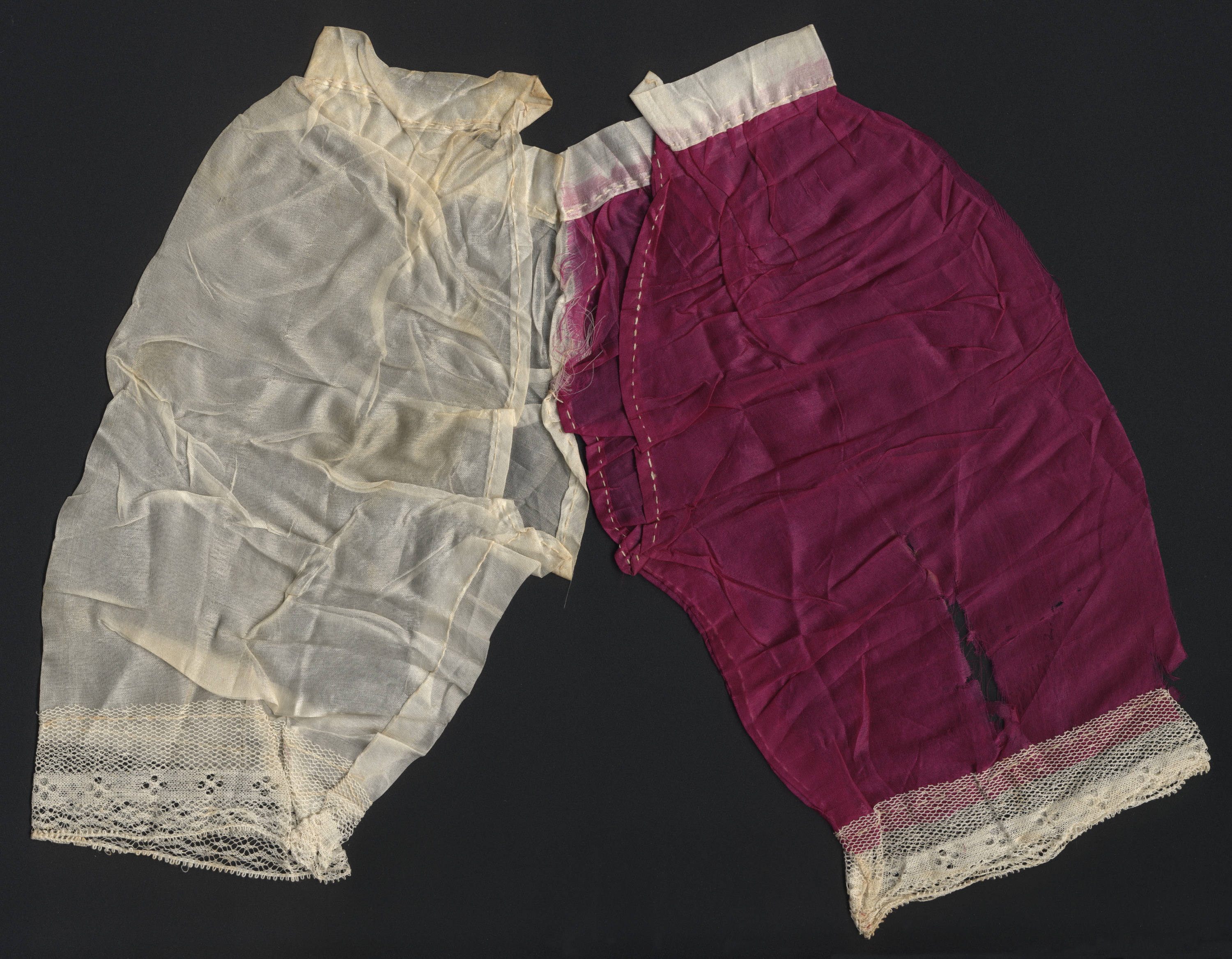
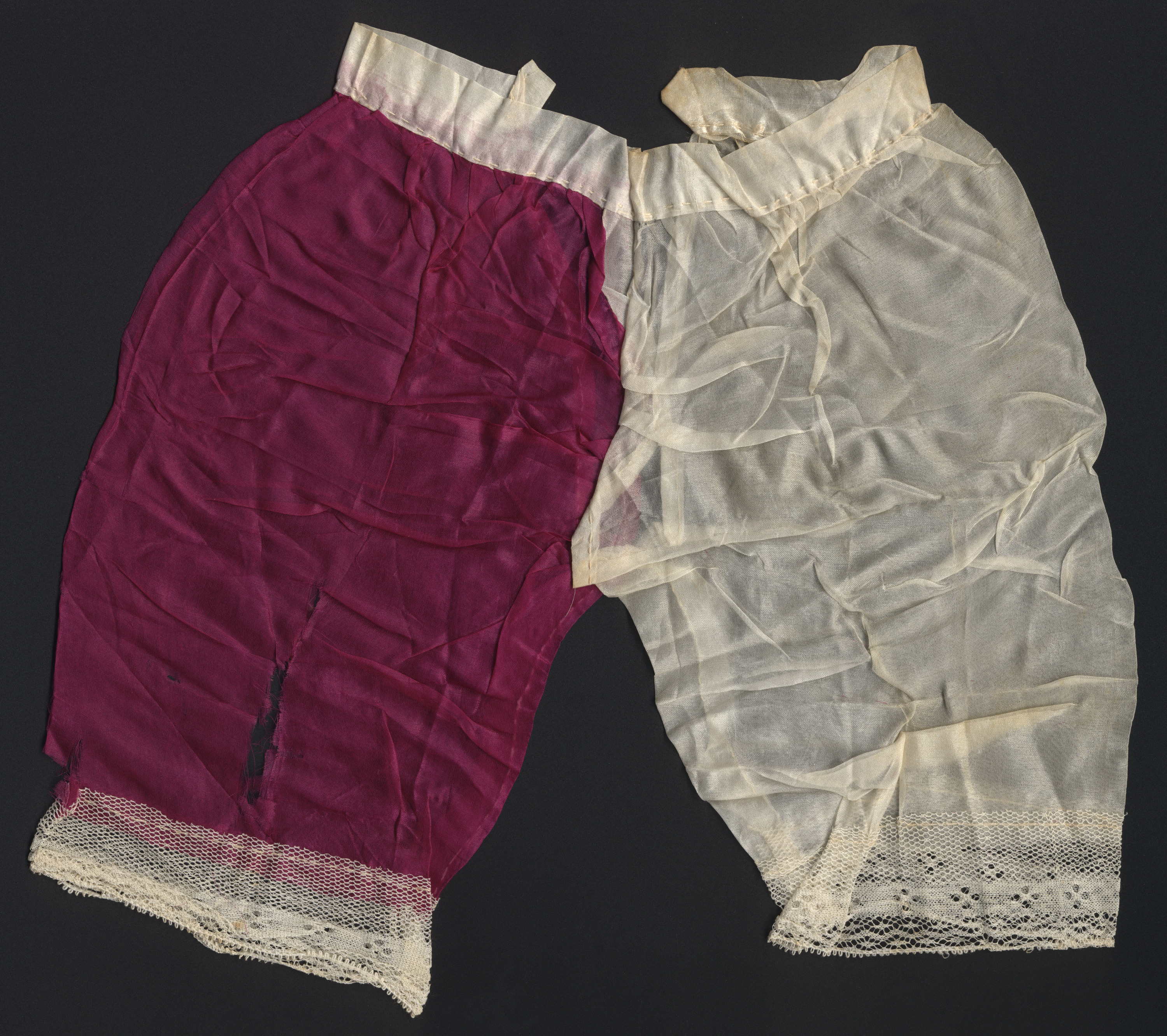
District Head Quarters
C.M.F. 3rd Military District
W12/66
T.H.,
24th September, 1915.
A.A.G:
3rd Military District.
2nd Lieutenant C.D. Mills, A.I.F
c/o E.S.& A. Bank,
Ascot Vale.
Intimation has been received from Head
Quarters that approval has been given for your appointment
to the A.I.F. in the rank of 2nd Lieutenant to date from
16/9/15, notification of which will shortly appear in the
Gazette.
Approval has also been received for
your allotment to the 23rd Battalion, 11th Reinforcements,
which will leave towards the end of October.
It is requested that you will inform this
officer of the date you will be able to report to the Camp
Commandant, A.I.F., for duty as above.
Colonel,
A.A.G., 3rd Military District.
Anzac Bulletin
Issued to Members of the Australian Imperial Forces in Great Britain and France by authority
of the High Commissioner for Australia.
NO. 2. LONDON, JULY 12, 1916. Gratis.
Anzac Bulletin
The object of The Anzac Bulletin,
which is issued by authority of the
High Commissioner for Australia,
is to provide Australians who are on
active service with a brief summary
of up-to-date Commonwealth news
and with any other information
which is likely to be of interest to
them. It will be distributed gratis
to members of the Australian
Imperial Force in France and in
Great Britain. The Anzac Bulletin
will be published three times weekly
—every Monday, Wednesday and
Friday.
COMMONWEALTH OF AUSTRALIA
OFFICES,
72, Victoria Street, London, S.W.
Cable News from Australia.
Trans-Australian Railway.
Adelaide, July 9.
The western section of the Transcontinental
Railway has now reached
to a point within 45 miles of the South
Australian border.
Preference for Soldiers and Sailors.
Melbourne, July 9.
The Minister for Defence has now
definitely stated that returned soldiers
and sailors are to be given absolute
preference of employment in his
department.
Repatriation of Soldiers.
Melbourne, July 9.
Mr. Rogers, a member of the Federal
Parliament, has formulated a useful
scheme for the repatriation of soldiers,
and a sum of £60,000 has already been
subscribed.
Trade with America.
Large Increase in Exports.
The exports from Australia to San
Francisco during the first quarter of
last year amounted to £360,000, and
for the same period of this year
£2,250,000.
Anti-Conscription Meeting Dispersed.
Sydney, July 10.
An Anti-Conscription Meeting at
the Sydney Domain was dispersed by
a crowd of civilians and soldiers.
THE MAN IN GREY.
NIGHT IN THE TRENCHES.
HOW TO SEE A GERMAN
(By Captain C.E.W. BEAN, Official Press Representative with the Australian Forces).
Press Camp, France.
The night air on every side of us was
full of strange sound. It was not loud
nor near, but it was there all the time.
You could hear it even while you
talked and above the sound of your
footsteps on the cobbles of the long
French highway. Ahead of you and
far on either side came this continuous
distant rattle. It was the sound of
innumerable waggons carrying up over
endless cobble stones the food and
ammunition for another day.
A cart clattered past us from the
front with the jingle of trace chains
and hammer of metal tyres over stones.
So one driver had finished his job for
the night. Further on was a sound
of voices and a chink of spades; some
way to our left across a field one can
make out dark figures—they may be
stunted willows along the far hedge or
they may be a working party going
up with their spades and picks over
their shoulders to one of those jobs
which in this flat country can only be
done by night.
NOT UNLIKE THE TURKS.
Twenty miles behind the lines or
more you can see every night along
the horizon in front of you a constant
low flicker of light — the flares thrown
up by both sides over the long ribbon
of no man's land — the ribbon which
straggles without a break from one
end of France to the other. We were
getting very close to that barrier now
— within a couple of miles of it ; and
the pure white stars of these glorified
Roman candles were describing graceful
curves behind a fretwork of trees
quite an inch or two above the horizon.
Every five or six seconds a rifle cracked
somewhere along the line — very different
from the ceaseless pecking of
Gallipoli. Then a distant German
machine gun started its sprint, stumbled,
went on again, tripped again.
A second machine gun further down
the line caught it up, and the two ran
along in perfect step for a while.
Then a third joined in, like some
distant canary answering its mates.
The first two stopped and left it
trilling along by itself, catching occasionally
like a motor car engine that
misfires until it too stuttered into
silence. "Some poor devils being
killed, I suppose." you think to yourself,
"suppose they've seen a patrol
out in front of the lines or a party
digging in the open somewhere behind
the trenches". You can't help crediting
the Germans — at first when you
come to this place as a stranger — with
being much more deadly than the
Turks both with their machine guns
and their artillery. But you soon
learn that it is by no means necessary
that anyone is dying when you hear
their machine guns sing a chorus.
They may chatter away for a whole
night and nobody be in the least the
worse for it. Their artillery can throw
two or three hundred shells or even
more into one of its various targets,
not once but many a time, and only a
man or two be wounded : sometimes
no one at all. War is alike in that
respect all the world over apparently,
which is comforting.
IN THE DARK ALLEY.
Presently the road ends and the
long sap begins. You plunge into the
dark winding alley much as into some
old city's ugly bye-lane. It is Centennial
Avenue. There is room in it
to pass another man even when he is
carrying a shoulderful of timber.
But you must be careful when you
do pass him or one of you will find
yourself waist deep in mud. You do
not walk on the bottom of the trench
as you did in Gallipoli, but on a narrow
wooden causeway not unlike the
bridge on which ducks wander down
from the henhouse to the yard —
indeed it is colloquially known as the
"duck-boards." The days have probably
past when a man could be drowned
in the mud of a communication trench.
But it is always unpleasant to step off
the duck-boards in wet weather. Seeing
that the enemy may have fixed
rifles trained on you at any bend of
the trench it is unwise to carry a light,
and in a dark night and an unaccustomed
trench you are almost sure to
flounder.
A party of men loaded with new
duck-boards is blocked ahead of you.
As you stand there talking to another
wayfarer and waiting for the unknown
obstacle to move, a bullet flicks off
the parapet a few fee away. It was
at least a foot above the man's head
and was clearly fired from some rifle
laid on the trench during the daytime.
Every now and then the parapet on
one side of you becomes dense black
against a dazzling white sky, and
while the trench wall on the other
2 ANZAC BULLETIN, JULY 12, 1916.
side becomes a glaring white background
on which your own head and
shoulders sail slowly past you in inky
black silhouette The black picture
gradually rises up the white trench
wall, and all is black again until the
enemy throws another flare.
THE WHIZZ-BANG.
As you talk there comes suddenly
over the flats on your left a brilliant
yellow flicker and a musical whine :
"Whine—bang, whine—bang, whine
—bang, whine—bang," just like that
spoken very quickly. "That's right
over the working party in Westminster
Abbey," says the last man in the procession.
"Some bally fool lit a pipe,
I suppose." The man next him
reckons it was about Lower George-
street that got it that time. "They
been registerin' that place all day on
an' off," he says. There was just that
one swift salvo, and nothing more.
Presently when the procession moved
on we came across men who had had
a shower of earth thrown down their
backs by the burst of those shells.
Just one isolated salvo in the night
on one particular spot. Goodness
knows what the Germans saw or
thought they saw. No one was hit,
nothing was interfered with. But it
is a great mistake to think it all foolishness.
The most methodical soldier
in the world is behind those sandbags,
and he doesn't do things without
reason.
Further on we come through a series
of hovels more like dog kennels than
the shelters of men, to the dark parapet
where men are always watching,
watching across a hundred yards or
so of green pasture the dark mud
parapet on the other side. Here and
there over a dugout there fidgets a
tiny toy aeroplane such as children
make, or a miniature windmill. The
aeroplane propeller is revolving slowly,
tail away from the enemy. Just a
perfect night for gas — that is what the
aeroplane propeller says.
Once only in the night there is a
clatter opposite — one machine gun
started it, then two together, then
forty or fifty rifles. Perhaps they
think they saw a patrol. The Turks
used to get precisely similar nerve
storms on the Russell's Top. Nobody
even troubles to remark it. Dawn
breaks over the watching figures without
one incident to report.
MEN IN GREY
It is after the light has grown and
become fixed that you will notice, if
you look carefully for it, a thin film
of blue smoke floating upwards from
behind the sandbags on the other side
of no man's land. Only a hundred
and fifty yards away from you their
cook must be fitting his old browned
and burned dixies and kerosene tins
over their early morning fire.
We had our early morning coffee,
too. And as we walked homewards
we found that from a particular point
we were looking straight at a distant
barn roof which is in German territory.
Near it towards his trenches ran a
road. Of curiosity we turned our
telescopes on to that path, and while
we watched there strolled along it two
figures in grey — grey tunics, grey
loose trousers, little grey buttony caps,
walking down the path towards us
talking at their ease. Twenty seconds
later along came another pair.
Clearly they had said to themselves,
"We must not walk about here except
in two's or three's or we shall draw a
shell from one of those Verfluchte
British whizzbangs".
And so those Germans strolled—like
we did-from their breakfast to the
daily work.
MURDER OF PATROL OFFICE IN PAPUA
The External Affairs Department
has received from the
Lieutenant-Governor of Papua
(Judge Murray), a despatch concerning
the recent murder of Patrol
Officer R. D. Kirby. It appears
that the natives of three villages
were reported to have murdered
12 Moraro people, and Mr. Kirby
and a strong force of native police
were sent out to arrest the guilty
parties. They found the natives
of the three villages concerned
holding a dance at a village known
as Siakis. The men resisted arrest,
and in the affray Mr. Kirby and
two native constables were
wounded by arrows. Mr. Kirby's
wound was fatal, but neither of
the native constables was seriously
injured.
The late Patrol Officer Kirby
was educated at Cambridge. For
three years he held a commission
in the Suffolk Artillery Militia,
and he saw active service for 18
months in the South African war.
He came to Australia from South
Africa, and for some time held the
position of Sydney manager for
the Main Range Colliery. Subsequently
he bought a small farm
at Mentone, Victoria, but early
last year he secured a position in
the Papuan Civil Service, and
a little later was promoted as
patrol officer. He was 34 years of
age.
AFTER THE WAR.
NOT IMMEDIATE DISBANDMENT.
Senator Pearce, Acting Prime
Minister, speaking at the Premiers'
Conference, Adelaide, when the
question of the settlement of
returned soldiers was being discussed,
said that he was afraid
there was just a danger of too
much organisation being built up
and too little being done. It was
almost certain that no Government
would dream of disbanding 100,000
men at once. Disbandment would
be spread over some considerable
time, and would be determined by
the capacity of the States to absorb
the men. It would be better to
keep men in camp than turn them
out into the streets to become a
menace to the general community.
They had never contemplated discharging
them in large numbers.
SOLDIERS' PAY.
CANNOT BE MORTGAGED.
The Commonwealth Federal Executive
has adopted a regulation
under the War Precautions Act
which makes it an offence for any
person wo receives an allotment
pay in respect of a soldier on active
service, to assign, pledge, or in any
way mortgage the allotment certificate.
Any assignment made
prior to the issue of the regulation
is void. Any person or manager
or responsible officer of a corporate
body who accepts and assignment
of allotment pay is guilty of an
offence, and the allotee can demand
the return of the certificate.
Another regulation under the
Act applies for provisions of the
Alien Restriction Order of last year
in respect of alien enemies to any
British subject who is also a subject
of an enemy State, to the
same extent as if the person concerned
were not a British subject.
Any person whose conduct has
been such as to show that he considers
himself an enemy subject
or who has been considered by an
enemy Sovereign or State as a
subject, may be taken to be an
enemy subject.
3 ANZAC BULLETIN, JULY 12, 1916.
CABLE NEWS FROM AUSTRALIA.
Training of Apprentices.
Melbourne, July 10.
At the Technical Education Conference
a resolution was carried urging
that the Government should introduce
a Bill to provide for the proper training
of apprentices.
—
Rabbit Skins Requisitioned
To make Hats for the Anzacs.
Melbourne, July 10.
On account of the rising rates of
rabbit skins Mr. Pearce, the Minister
for Defense, has decided to requisition
supplies at fixed prices for the manufacture
of military hats.
—
Photographic Chemicals
Produced in Victoria.
Melbourne, July 10.
The Victorian Railways Photographic
Department has successfully
produced the photographic chemicals,
pyrograllol and amidol, with a view
to breaking down what has hitherto
been a German monopoly.
—
Mining in Tasmania.
Renewed Activities.
Hobart, July 10.
There are rejoicings on the west
coast of Tasmania owing to the
expected renewal of mining activities
consequent upon the Mount Lyell
Company and the Hercules Rosebery
Group entering upon a progressive
policy.
—
Australia's New Loan.
Public urged to Subscribe.
Melbourne, July 10.
The Federal Treasurer has urged
public men to address meetings with
a view to inducing everyone to take
bonds in the new war loan according
to their means. A movement is
growing among private employers in
the direction of financially assisting
employers to take war bonds.
—
Melbourne, July 10.
The Governor-General of the Commonwealth,
Sir Ronald Munro-Ferguson,
has completed his tour of Western
Australia and is now returning to
Melbourne.
—
Mr. W. M. Hughes.
South African Festivities delay Return.
Melbourne, July 10.
The proposed festivities in honour
of Mr. Hughes in South Africa are
likely to postpone the return of the
Prime Minister to Australia till the
second week in August.
—
Fire in Melbourne.
Melbourne, July 10.
The Hardware Chambers, Melbourne,
have been seriously damaged by fire.
—
Statue to Cardinal Moran.
To be Erected at Canberra.
The Minister for Home Affairs has
given permission for the erection at
Canberra, by the Hiberian Societies,
of a statue to the late Cardinal Moran.
—
Boxing in Australia.
Wins for Clabby Kay and May.
Melbourne, July 10.
Fritz Holland was knocked out by
Jimmy Clabby in the sixth round of a
contest at the West Melbourne
Stadium. Fred Kay defeated Harry
Stone on points in a 20 rounds match
at the Sydney Stadium. In Brisbane
Eddie May beat Fernand Quendreaux
on points in a 20 rounds contest.
—
Billiards.
Fred Lindrum beats McConachy.
Melbourne, July 10.
In an 18,000 up billiard match in
Melbourne, Fred Lindrum beat Clarke
McConachy, the New Zealand champion,
by 3,000 points.
—
Football.
Melbourne, July 10.
Public interest in the football contests
is steadily declining.
—
Flemington Grand National Won by
Coadjill.
The Flemington Grand National
Steeplechase was won by Coadjill,
with Rendrock second and Bullawarra
third. The winner started at 14 to 1.
In the Footscray Steeplechase there
were six started and Ungala was the
only horse to finish.
—
Teaching of Japanese
Encouraged by Melbourne University.
Melbourne, July 10.
The Melbourne University has decided
to encourage the teaching of the
Japanese language.
---------------------------------------------
The Fixing of Prices.
Melbourne, July 10.
The Commonwealth Government
has fixed the maximum price at which
flour, bran, pollard and bread may be
sold.
—
Savings for the War Loan.
Melbourne, July 10.
The Victorian State Savings Bank
is opening special war loan accounts
for small depositors who are prepared
to make contributions weekly.
—
Adelaide City Temple.
A Big Scheme Relinquished.
Adelaide, July 10.
The Rev. Paul Joseph, Congregational
Minister of Adelaide, after
purchasing the late Chief Justice Way's
residence and starting a big building
for the City Temple, has relinquished
the scheme on account of an expected
inheritance not being realised.
—
Tax on Amusements.
Adelaide, July 10.
The Premier of South Australia
stated to-day that the Government
proposed to include an amusement
levy in their new taxation scheme.
—
Australia's Wool Realises £30,000,000.
Most successful Season in History.
Melbourne, July 11.
Messrs. Dalgety & Co. Ltd. have
been issued a striking set of statistics
which show that the year which ended
on the 30th June was the most successful
ever known in the history of
the pastoral industry.
—
The wool clip sold in Australia
realised nearly £30,000,000, averaging
£16 10s. per bale, as against the previous
season's £19,750,000, averaging
£12 15s. per bale. The number of bales
sold was 10,180, against 10,154 during
the previous season. Of the amount
exported the United Kingdom took
41 per cent., America and Canada
31 per cent., and Italy and Switzerland
10 per cent.
—
Scientific Research.
The David Syme Prize.
Melbourne, July 11.
The David Syme prize for science
research has been awarded this year
to Charles Headley, Assistant Curator
of the Australian Museum, Sydney.
—
The Victorian Railways.
Increased Revenue.
Melbourne, July 11.
The revenue of the Victorian Railways
for the year ended June 30th,
amounted to £5,700,000, an increase
of £500,000 over the previous year.
—
The late Lawrence Cohen.
Melbourne, July 11.
The Federal Government has
granted a sum of £250 to the widow
of the late Lawrence Cohen, President
of the Political Labour Council of
Victoria.
—
The Lithgow Arsenal.
Machinery from America.
Sydney, July 11.
A large quantity of rifle making
machinery for Lithgow has arrived
from America.
—
A "Do without" Week.
For Soldiers and Dependents.
Brisbane, July 11.
Queensland is organising a "do
without" week during August for the
purpose of raising funds for soldiers
and their dependents. A holiday has
been proclaimed on the 26th August
for the purpose.
—
Drought Breaks in Western
Queensland.
Brisbane, July 11.
The drought has been broken in Western
and North-Western Queensland, and
fine winter rains have been recorded.
It is certain that grass will now be
abundant.
4 ANZAC BULLETIN, JULY 12, 1916.
Cable News from Australia—continued.
—
New Queensland Railway.
Brisbane, July 11.
A railway connecting the South
Burnett and Brisbane Valley systems
between Nanango or Tarong and
Yarraman has been officially recommended.
—
Good Prospects for Queensland
Timber.
Brisbane, July 11.
There have been a great many
enquiries recently from the other
States for Queensland soft timbers.
The Australian market can absorb
50 million feet annually which Queensland
is able to supply. It is expected
that there will be an early development
of the timber industry with a
proper system of afforestation.
—
Van Diemen's Land Company.
Increased Revenue and Dividend.
Hobart, July 11.
The revenue of the Van Diemen's
Land Company, for 1915, shows an
increase of £3,300 over the 1914
figures. There has been an increased
profit on the company's farming
operations. The dividend payable has
been increased from 7s. 6d. in 1914 to
12s. this year.
—
Australian Manufacturers to Visit
United States.
Melbourne, July 12.
The Commonwealth has decided to
appoint a commission consisting of six
manufacturers and six workers to
visit the United States and investigate
and report upon American methods
of manufacture and production and
upon conditions of employment. A
scheme is proposed for the establishment
of Government cable works for
the manufacturing of wire cables and
metal ropes, rendering Australia independent
of outside sources for these
commodities.
—
Commonwealth Government Line.
Melbourne, July 12.
Mr. Pearce, the Federal Minister of
Defence, states that the Commonwealth
Government has decided to
hand over the control of the Commonwealth
Merchant Fleet to the Navy
Department until a scheme for the
permanent management of the fleet
has been devised.
—
IRON WORKERS STRIKE.
NEWCASTLE, Wednesday.
The 600 ironworkers who came
out on strike at Walsh Island on
May 18th resumed work in May
24th. The five men who were
dismissed and told to report themselves
again were reinstated. The
men lost 4½ days’ wages, which
amounts to about £1,500.
Settlement of Returned Soldiers.
Mr. Hagelthorn, speaking at the
Premiers’ Conference, Adelaide,
said a sub-committee had reported
in favour of the formation of a
committee representative of the
Commonwealth and the different
State Cabinets to deal with repatriation
matters and the compilation
of information relative to
the possibilities of employment.
To this report a recommendation
to the effect that information
should be sought as to what public
works of a reproductive character
each State could undertake with
a view to absorbing the number
of men returning, not otherwise
provided for, and the amount of
money required for such works was
added.
Senator Pearce said that organisations
having been set up to deal
with the employment of the men,
why should they duplicate them?
The State War Councils had been
formed for the particular purpose.
The Federal Ministers were kept
so busy that they had not the time
to give to this work, and the
Ministers of the different States
were so widely separated. The
Federal Government had already
taken steps to ascertain the previous
occupations of the men —
whether they desired to go on the
land, and so on.
Mr. Blundell (S.A.): Does that
apply to those already at the front?
Senator Pearce said it did not,
but cards had been sent to Egypt
and France, and it was hoped to
have a reply to every card by
November. That information
would be supplied to the State
War Council. If those councils
took up the question they could
comply with the recommendations
of the sub-committee, and there
was no reason, therefore, why the
machinery already in existence
should be duplicated.
Mr. Holman (N.S.W.) said the
State War Councils were a Federal
organisation, and whatever authority
they wielded it was extremely
trifling. Certain things only could
be done by the authority of the
State Government, and the proposal
of the sub-committee was to
bring the State Governments in
co-operation with the Federal
Government. The War Councils
may continue to go a great deal
of valuable work as organs of the
Federal Government. To do so
serious a work through the State
War Councils led to an enormous
amount of duplication.
Senator Pearce said that the
recommendations of the sub-committee
were practically on the
lines of the existing State War
Councils. What appeared to be
wanted was some central body, on
which the State Governments had
representation.
Mr. Scaddan (W.A.) said if they
were going to leave the question
of settling the greatest question
Australia had ever had to handle
to a lot of busybodies on the State
War Councils, who carried motions
on matters they had no right to
touch, it was going to be very
unsatisfactory. After all, the final
responsibility would rest with the
State Cabinets and the Federal
Cabinet. In the circumstances all
they suggested was that for the
purpose of having the problem
satisfactorily handled and arriving
at a solution each State should have
a representative Minister to confer
with a responsible Federal Minister.
It was decided to adopt the
first of the sub-committee's recommendations,
namely, that with a
view to meeting and solving the
difficulties likely to arise on the
return of large bodies of men to
Australia, a committee, comprising
one Minister from each State and
one Minister to represent the Commonwealth,
be established to secure
co-ordination in matters connected
with the repatriation of soldiers.
—
WIRELESS SQUADRON.
All reinforcements of the Wireless
Signal Squadron are to be
concentrated in Victoria. This
troop is being raised for service
under the Indian Government.
The first detail or quarterly reinforcements.
of one officer and 20
men, will leave in July.
AUSTRALIA BUYS A DREDGE.
The Minister for the Navy (Mr.
Jensen) has completed arrangements
for the purchase, from the
Indian Government, of a 2,500 ton
dredge, at a cost to the Commonwealth
of £95,000. The dredge
will be employed at the Henderson
Naval Base, West Australia.
--------------------------------------------------
Printed for the Australian Commonwealth by Printing Craft, Limited, 4 & 5, Adam Street, Strand, W.C.
 Jacqueline Kennedy
Jacqueline KennedyThis transcription item is now locked to you for editing. To release the lock either Save your changes or Cancel.
This lock will be automatically released after 60 minutes of inactivity.